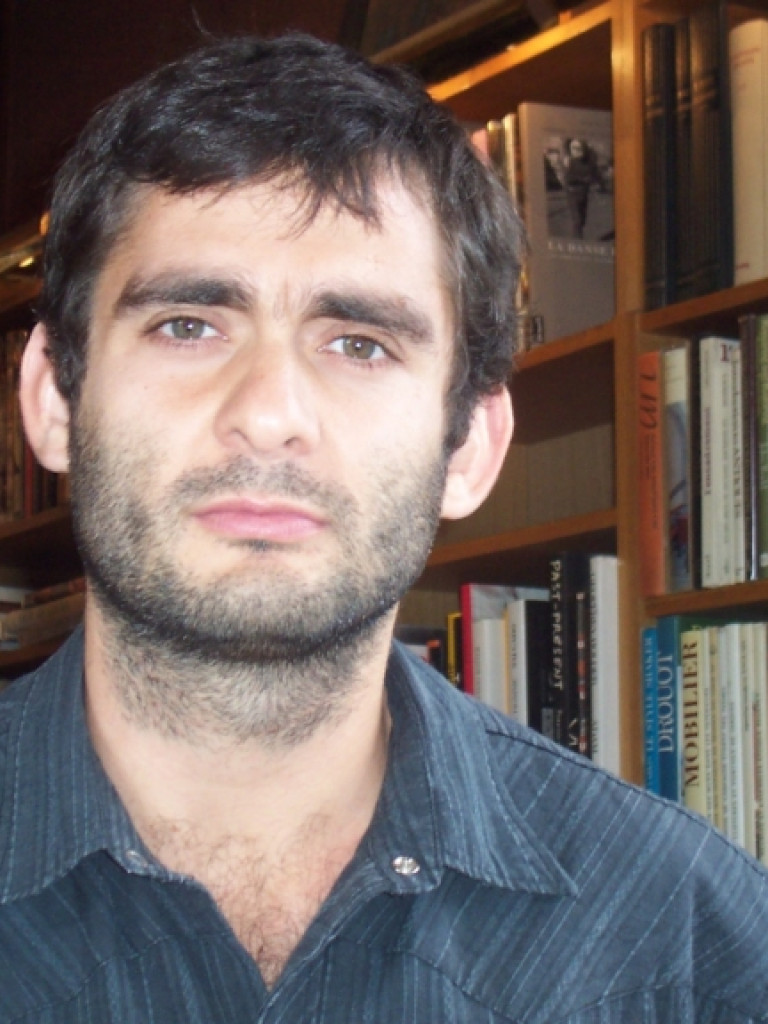
Martín De Ambrosio
- 2017
- Press Fellow
Martín De Ambrosio is Science journalist since 2000, Martin was a staff member of the Argentinean national newspapers Página 12 and Perfil. Since 2013, he has been working as a freelancer for different TV and radio shows as well as print media like La Nación and La Capital newspapers and SciDev.Net. He has published numerous divulgation books such as Science best friend (2004), Scientist sportsperson (2009), Medicine was not always like this (2011) and All you need to know about climate change (2014). He has covered UN climate change summits in Cancun (2010), Lima (2014) and Paris (2015), two of them as CCMP fellow. 1. Why did you choose to become a science journalist? Since my childhood I have been a reader of popular science magazines and amazed by books like Carl Sagan’s Cosmos. But, I have to confess, I did not in fact “choose” to become a science journalist. I wished to write to make a living but when I started to work in journalism I did not know exactly in what kind of journalism (or writing). Nevertheless, I signed up for a seminar in Science Journalism at the University of Buenos Aires. And at the end of that seminar I was chosen to be part of a national newspaper as writer in the science section. Since then, 17 years after, I’m keeping that path in one way or another. Chance and necessity. 2. What role do science and science communication play in your country? There is a growing science communication sector in Argentina. It is divided into three main legs: science journalism, divulgation or popularization (done mostly by scientists themselves) and science education (incarnated by educators and teachers). There is, however, a lack of interaction and understanding between these three groups that is needed to work together against pseudoscience, for instance. Regarding general Argentinean science development, there is contradictory data. Although the country has three science Nobel prizes and has reached some degree of expertise in complex technologies, such as nuclear energy, it has its ups and downs regarding national financing (like many South American countries, now in decline after about ten years of growing budget). Other areas are also well developed, like medicine, biology and climate and environmental sciences. Other issues to point out: I think that more science is needed to improve public debate, because most of them is not based on evidence or reliable data. 3. What are the main challenges of science journalism in your country? There is a growing impression that journalism is in a crisis, or evolving into another direction (not quite clear what or where it is now, and where it will be). Social networks and different ways of consuming news changed the way they are seen and produced. Having in mind that changing environment, science journalism yet needs to be seen as essential, indispensable. It is clear that journalists are needed to report on economics, politics, sports; but this is not always the case for science. The science journalism expertise is most of the time not very well valued, but when science issues get to the front page they are vital, decisive, and editors look for them. Obviously, another issue is adequate remuneration for this knowledge. 4. Where do you see the big societal transformations in the future? What scientific research/discovery will change our world? Neurosciences (brain enhancing, cure for some diseases); gene editing, larger life span; space research (maybe finding alien forms of life); climate change (new power generation, new technologies); robotics and artificial intelligence. Unfortunately, I`m not seeing changes in social justice and wealth redistribution and I am wondering how the world will deal with 8, 9 billion people (and counting…). 5. What book, movie or song has radically changed your perspective? And why? Since I´m a big reader I can enumerate a lot of books that changed my life, although I believe they have changed it slowly, imperceptibly.
- Cosmos (Carl Sagan)
- Ficciones (Jorge Luis Borges)
- Les Misérables (Victor Hugo)
- Foucault’s Pendulum (Umberto Eco)
- The Martian Chronicles (Ray Bradbury)
- Questioning the Millennium (Stephen Jay Gould)